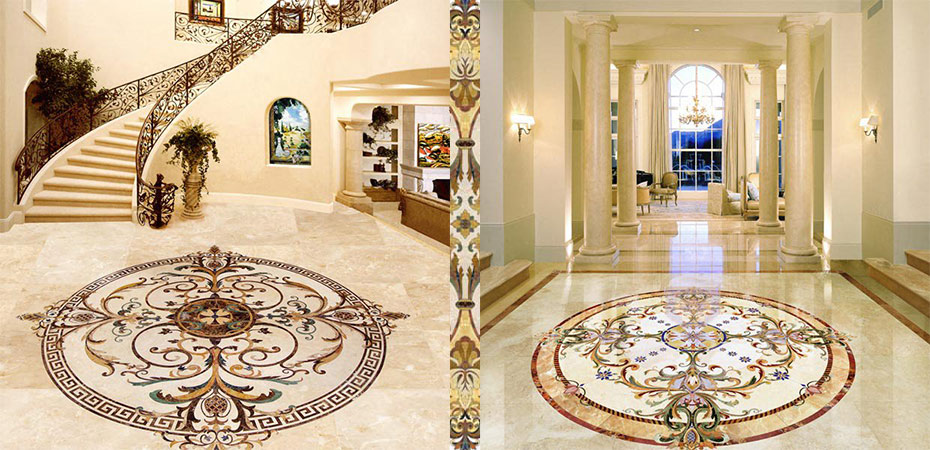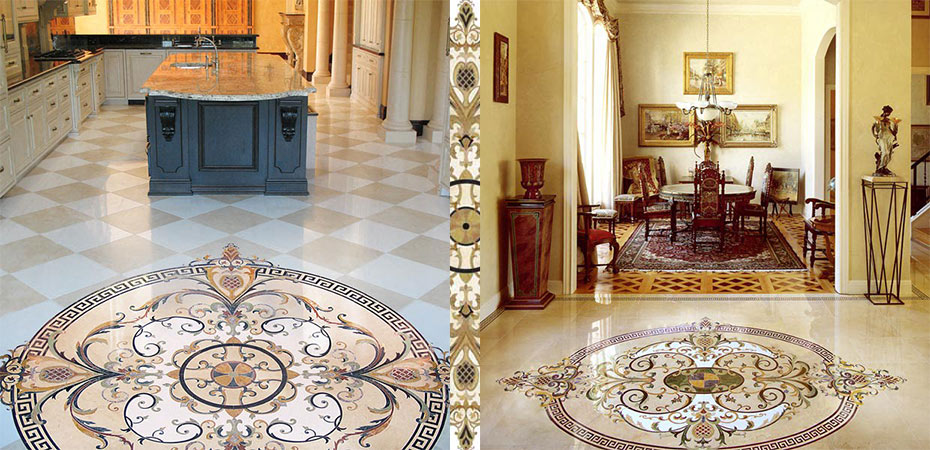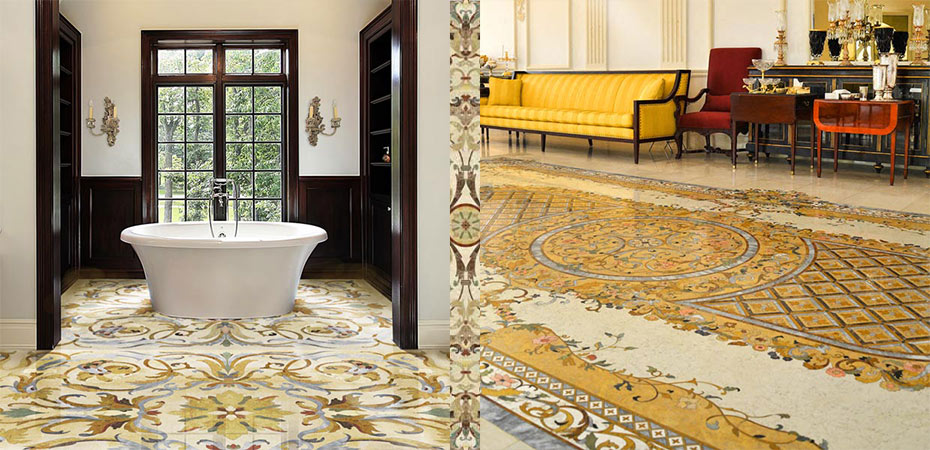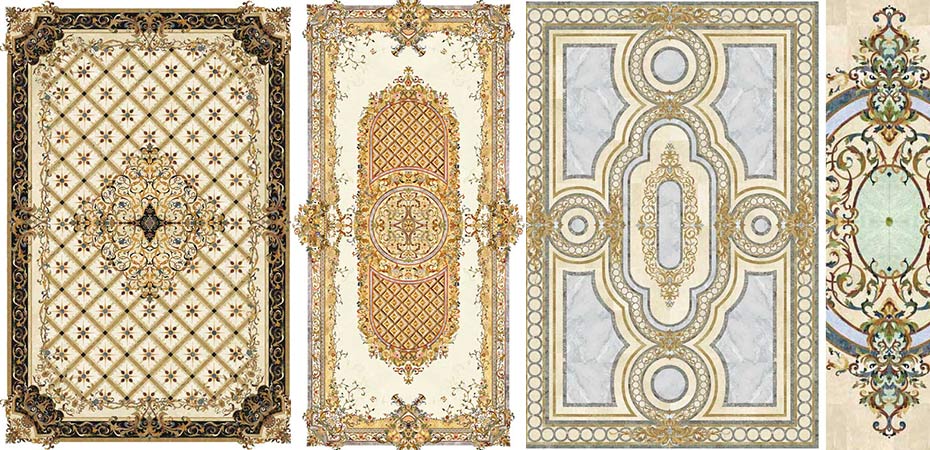
Waterjet medallion is a highly attractive new favorite in today's interior decoration. Whether classical or modern, European or Chinese, waterjet medallions can fully demonstrate their consistent nobility and luxury. By cutting, processing, and assembling stone materials into specific artistic forms, they becomes a masterpiece in space decoration.

Waterjet medallion is a beautiful natural stone painting created by people through artistic conception, replacing pigments with natural stone. It is mainly achieved by utilizing the unique natural colors, textures, and materials of natural stone, combined with clever artistic concepts and designs. With the development of stone processing technology and techniques, as well as the complexity of patterns and designs for stone mosaic, stone water jet cutting equipment is widely used in the processing and production of stone mosaic. And for complex mosaic designs, water jet cutting equipment has become an indispensable tool, so stone mosaic is also known as water jet mosaic.

Waterjet medallion, a form of deep processing of stone, is not limited to materials such as stone and ceramics, such as glass, copper plates, mosaics, etc. It is also a highly decorative art.

The types of stone waterjet medallions:
1. Divided by scale
There are outdoor plaza waterjet medallions, large building indoor waterjet medallions, and villa waterjet medallions.
2. Divided by process
There are three-dimensional waterjet medallions, flat waterjet medallions, and inlaid waterjet medallions.
3. Divided by style
There are European classical pattern waterjet medallions, neoclassical and Chinese style waterjet medallions, modern minimalist pattern waterjet medallions, and so on.
The material selection precautions:
1. Color
The basic principles of material selection are: firstly, the principle of gradually transitioning colors, and secondly, the principle of not affecting the aesthetic decorative effect of the waterjet medallions.
2. Ripple pattern
In the processing of stone mosaic, the pattern changes on the board surface are also very important. Especially for high-quality, demanding, and artistic high-end products, it is best to combine texture changes with design in order to better showcase the design effect.
3. Defects
From the perspective of the quality of the mosaic, such as color lines, spots, cracks, holes, sand holes, and mold spots, these stone defects are absolutely not allowed.
However, the allowable range of defects cannot affect the overall decorative effect of the mosaic.